Protecting disabled people’s rights.
The past decade has been a particularly exciting time for the disability movement. We have seen a step-change in legislation and policy commitments on disability and development. Now the challenge is to ensure that these policy commitments are turned into action.
There are two key policies that relate to protecting the rights of people with disabilities around the world.
1. Convention on the Rights of Persons with Disabilities (CRPD)
In a perfect world, the Universal Declaration of Human Rights, would be enough to protect everyone. But in practice certain minority groups have fared far worse than other groups. International conventions, such as the CRPD, are in place to protect and promote the human rights of these groups. By ratifying a convention a country accepts its legal obligations under the treaty and will adopt implementing legislation. The UN’s Convention on the Rights of Persons with Disabilities is a major step toward changing the perception of disability and ensuring that disabled people are given equal opportunities in society.
2. The 2030 Agenda for Sustainable Development.
This historic document lays out the 17 Sustainable Development Goals, which aim to mobilise global efforts to end poverty, foster peace, safeguard the rights and dignity of all people, and protect the planet.
Turning commitments into actions.
We partner with disability rights activists to make sure their voices are heard by global leaders and people with the power to make real change. We help create connections between the disability movements and the political world of decision-makers.
ADD International works with organisations of disabled people to influence governments, international development actors and the private sector to design policies and services at a local and global level which take into account the needs of disabled people. Whether it’s providing advocacy advice to disabled people in developing countries, or sharing their perspectives at the United Nations, our job is to ensure the voices of disabled people are heard. In this way, we are empowering disability activists to lobby power-holders to make sure the promises made in the CRPD and SDGs are kept.
TURNING COMMITMENTS INTO ACTIONS

Influence
Influencing national policies and disability laws

Advocate
Advocating for inclusive development processes at the global level.

Rights
Amplifying the voice of disabled people as right holders.
Mainstreaming Disability.
Development organisations need to be planning how they will ensure their programmes are increasingly inclusive of disabled people. Read our report into how you can mainstream disability into your development work.
Learning from what we do.
We recognise the importance of gathering rigorous, objective data, alongside the voices, perspectives and experiences of disabled people themselves. We use this learning to reflect on what works and what doesn’t, so that we can improve the quality and value of our work. But we also have a responsibility to make sure that we use this evidence and learning to influence others – to help policymakers and powerholders understand what disability exclusion really means in the lives of individuals, and to show them what they can do to ensure that their work takes account of disability and includes disabled people.
read our research reports

livelihoods
Read the learnings from our 9-month study, funded by the Rockefeller Foundation, that looked at how market-based approaches can work for disabled women in Uganda to help lift them out of poverty.

Inclusive education
We asked disabled children in Tanzania to review our work and tell us what we are doing right and what we need to improve.

gender
ADD International’s work over the years with disabled women has resulted in an increased focus on the intersectional discrimination of gender and disability.

